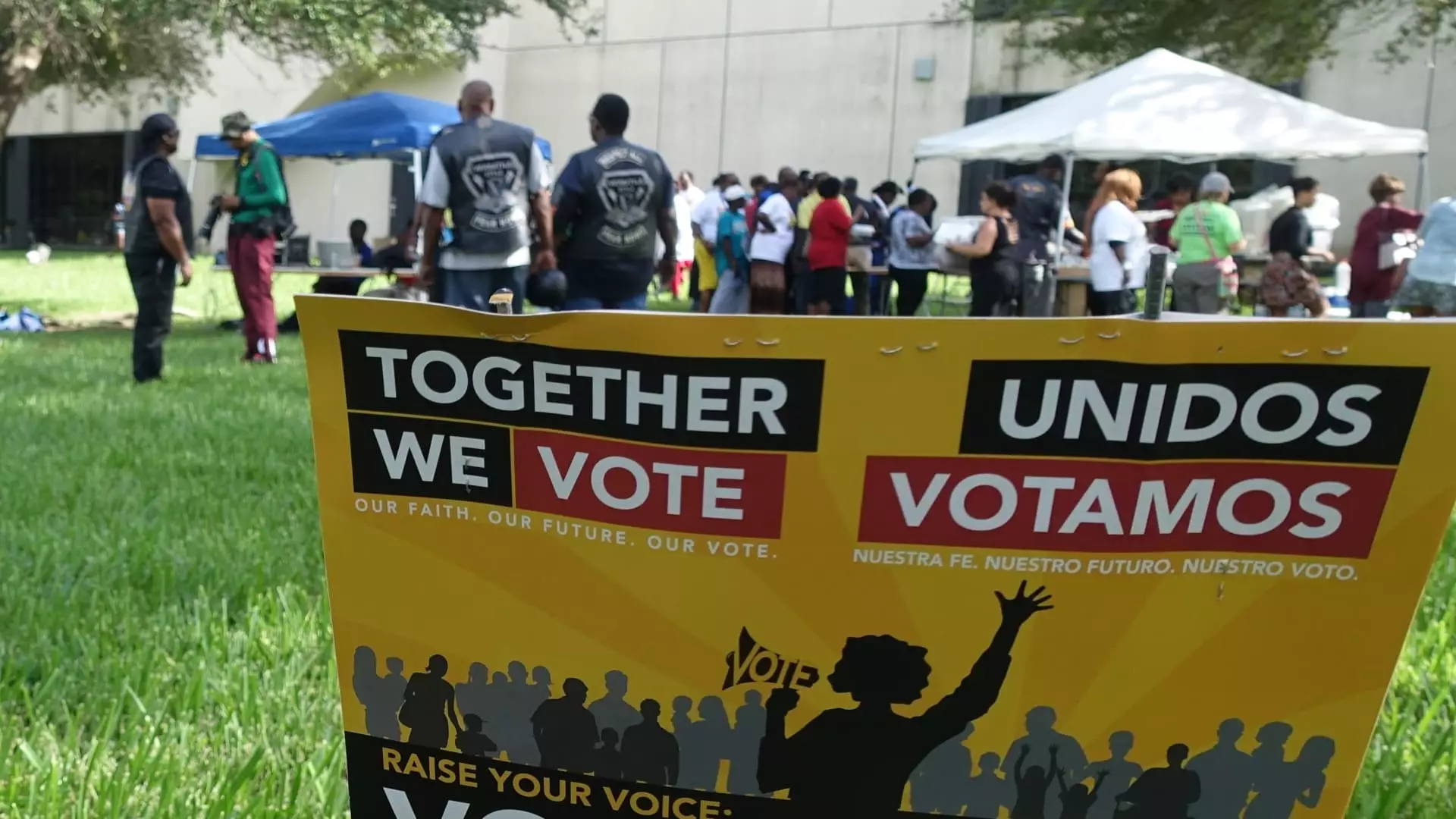In the rapidly shifting landscape of American politics, voter engagement, particularly among diverse demographics, has become crucial for campaign success. The Harris campaign is undertaking one of its most significant efforts to connect with Latino voters as the 2024 elections loom. The initiative coincides with National Hispanic Heritage Month, signaling a commitment to honoring and understanding the cultural relevance of the Latino community while simultaneously leveraging its voting potential.
As early voting approaches, the Harris campaign has strategically identified battleground states like Arizona, Nevada, and Pennsylvania, where substantial Latino populations reside. These demographics could prove pivotal in swaying the election’s outcome. Thus, the campaign is ramping up its outreach efforts, employing strategies that include heavy investment in Spanish-language media and grassroots organizing at culturally relevant events such as boxing matches and baseball games. This targeted approach showcases an understanding of the community’s interests and the importance of engaging voters in settings where they feel most at home.
High-Profile Events and Surrogates
Vice President Kamala Harris is set to address the Congressional Hispanic Caucus Institute’s annual conference, a platform designed to communicate directly with Latino leaders and constituents. The event will highlight the campaign’s serious commitment to garnering support, bolstered by appearances from influential figures like Minnesota Governor Tim Walz. He is expected to tour swing states and speak directly to potential voters.
Additionally, the involvement of various surrogates reflects a strategy that extends beyond the candidate’s immediate circle. For example, politicians like Rep. Adriano Espaillat and Sen. Ben Ray Lujan will attend significant sporting events, such as the Canelo Alvarez versus Edgar Berlanga boxing match in Las Vegas, to engage Latino sports fans. This blend of celebrity culture and political engagement can serve to break down barriers and foster discussions about the stakes of the election.
Leveraging Media Resources
One of the most ambitious aspects of the campaign’s outreach is its $3 million investment in Spanish-language radio advertising from mid-September to mid-October—an effort that marketing experts consider one of the largest and most significant in the realm of Hispanic media. The strategy includes personalized engagement with popular radio hosts and programming that is focused on sports, tapping into the cultural interests of Latino audiences. By using familiar voices and relatable content, the campaign aims to create an informative and relatable narrative around its political messages.
This media strategy addresses a broader concern for the Latino electorate: the dissemination of misinformation. The campaign is aware that many potential voters rely heavily on family and community networks for information. Therefore, they are rolling out initiatives such as the “Latinos con Harris-Walz” WhatsApp channel, aiming to combat any distortions that could sway undecided voters.
Focus on Latino Polling Statistics
Recent polls indicate that Harris enjoys strong support among Latino voters, particularly in Spanish-speaking households. According to a survey conducted by BSP Research, around 60% of eligible Latino voters favor Harris over Trump, even with a significant margin of error. Conversely, support among English-dominant households, while still favorable towards Harris, indicates a competitive landscape that will require continued engagement and messaging adaptations.
The campaign’s acknowledgment of the varied preferences among Latino voters reflects a nuanced understanding of demographics. Engaging with bilingual households through media tailored to their language preferences is essential; it highlights the importance of dialogue that resonates on a cultural and personal level.
National Hispanic Heritage Month also presents significant opportunities for outreach. The Harris campaign plans to host events around Mexican Independence Day and other culturally significant holidays, showing respect and understanding for the Latino heritage. These gatherings will not only serve as platforms for direct voter contact but will also celebrate the contributions of Latino communities across the United States.
Such gestures signal the campaign’s recognition of the importance of cultural engagement. By participating in and honoring these events, the campaign marks itself as an ally that prioritizes the voices and traditions of Latino voters.
The Stakes of the Upcoming Election
The Harris campaign’s multifaceted approach aims at mobilizing Latino voters by amplifying their voices and concerns about what is at stake this election—most notably the implications of Trump’s policy on Latino communities. As leaders, including Health and Human Services Secretary Xavier Becerra, engage with voters in crucial states, the campaign endeavors to sow the seeds of informed activism among the Latino electorate.
As the Harris campaign lays out its strategic plan to enhance its appeal to Latino voters, it reveals a broader narrative about the evolving political landscape in America. The emphasis on culturally relevant messaging, grassroots outreach, and significant media investments demonstrates a commitment to representing and advocating for Latino communities. The success of this initiative could have far-reaching implications not only for the electoral success of the campaign but for the future of civic engagement within these communities.

Leave a Reply